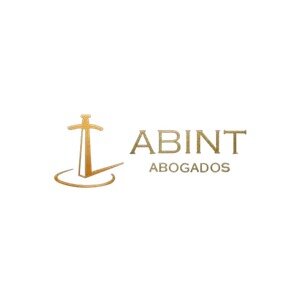Best Education Law Lawyers in Venezuela
Share your needs with us, get contacted by law firms.
Free. Takes 2 min.
Or refine your search by selecting a city:
List of the best lawyers in Venezuela
About Education Law in Venezuela
Education Law in Venezuela encompasses the legal frameworks, regulations, and policies governing the country's educational system. This includes primary, secondary, and higher education, as well as vocational training and adult education. The law aims to ensure that every individual has access to quality education, in alignment with the Constitution of Venezuela and various international agreements. Education Law covers aspects such as curriculum standards, teacher qualifications, student rights and responsibilities, school management, and funding.
Why You May Need a Lawyer
Individuals might need legal assistance in Education Law for various reasons, including disputes over school policies, violations of student rights, disagreements over educational accommodations, conflicts arising from discrimination in educational institutions, and issues involving the rights of teachers and administrative staff. Parents might seek legal advice for their children's access to special education services, while institutions may require guidance on legal compliance and governance.
Local Laws Overview
Venezuela's Education Law is rooted in the country's Constitution, which guarantees the right to education for all citizens. Key aspects include the Organic Law of Education, which outlines the responsibilities of educational institutions and sets the framework for public and private educational services. Other important laws include regulations on the accreditation of educational institutions, the professional standards for educators, and policies on inclusive education for students with disabilities.
Frequently Asked Questions
What is the purpose of the Organic Law of Education in Venezuela?
The Organic Law of Education serves as the main legislative framework that ensures the right to education and oversees the development of educational policy in Venezuela, aiming to provide equitable access to all forms of education.
Are private schools subject to the same regulations as public schools?
Yes, private schools must adhere to the national policies and regulations set forth in the Organic Law of Education, although they may have more flexibility in certain areas such as curriculum development.
What rights do students have under Venezuelan Education Law?
Students have the right to receive quality education, be free from discrimination, and have access to educational materials. They also have the right to participate in school governance and express their opinions on educational matters.
Can a student be expelled without a formal hearing?
No, students have the right to a fair hearing before any disciplinary action such as expulsion is carried out, ensuring that their rights are protected.
What legal protections are in place for teachers?
Teachers are protected under labor laws that ensure fair wages, reasonable working conditions, professional development opportunities, and protection against unjust dismissal.
How are special education needs addressed legally in Venezuela?
Venezuelan law requires educational institutions to provide inclusive education services accommodating the needs of students with disabilities, ensuring equal learning opportunities.
What should parents do if they believe a school is violating their child's rights?
Parents can file a complaint with the school administration and escalate it to the regional Educational Authority if necessary, and they may seek legal counsel for further actions.
Is homeschooling allowed in Venezuela?
Homeschooling is not widely recognized in Venezuelan law, and official guidelines primarily support formal and public schooling methods.
How are universities governed under Venezuelan law?
Universities fall under the jurisdiction of the Ministry of Education and must comply with national regulations, maintaining autonomy in certain academic and administrative areas.
What options do students have if they wish to appeal a decision made by an educational institution?
Students can appeal decisions by submitting written requests to the institution's appeal committee, and they may pursue legal action if their grievance is not resolved.
Additional Resources
For anyone seeking more information or assistance, several resources are available:
- The Ministry of Education: Responsible for overseeing and implementing education policies.
- Regional Educational Authorities: Provide local educational support and oversight.
- Defensoría del Pueblo: An institution that protects human rights, including education-related rights.
- Non-governmental organizations: Such as educational advocacy groups that provide support and information on education rights and policies.
Next Steps
If you need legal assistance in the field of Education Law in Venezuela, consider the following steps:
1. Identify your specific legal concern and gather any relevant documentation.
2. Contact a lawyer specializing in Education Law who can provide expert advice tailored to your situation.
3. Reach out to local educational authorities for guidance and support on institutional policies.
4. Consider mediation or alternative dispute resolution as a cost-effective method before pursuing litigation.
5. Stay informed of your rights and the latest developments in Venezuelan Education Law to better advocate for your needs or interests.
Lawzana helps you find the best lawyers and law firms in Venezuela through a curated and pre-screened list of qualified legal professionals. Our platform offers rankings and detailed profiles of attorneys and law firms, allowing you to compare based on practice areas, including Education Law, experience, and client feedback.
Each profile includes a description of the firm's areas of practice, client reviews, team members and partners, year of establishment, spoken languages, office locations, contact information, social media presence, and any published articles or resources. Most firms on our platform speak English and are experienced in both local and international legal matters.
Get a quote from top-rated law firms in Venezuela — quickly, securely, and without unnecessary hassle.
Disclaimer:
The information provided on this page is for general informational purposes only and does not constitute legal advice. While we strive to ensure the accuracy and relevance of the content, legal information may change over time, and interpretations of the law can vary. You should always consult with a qualified legal professional for advice specific to your situation.
We disclaim all liability for actions taken or not taken based on the content of this page. If you believe any information is incorrect or outdated, please contact us, and we will review and update it where appropriate.
Browse education law law firms by city in Venezuela
Refine your search by selecting a city.










